Abstract
1. Prostaglandins A1, E1, F1α and F2α were infused into the vertebral artery of the chloralose-anaesthetized greyhound and the resulting cardiovascular responses were compared with those obtained on intravenous and intracarotid infusions in the same dose range.
2. Infusions of PGF2α intravertebrally (4-64 (ng/kg)/min) caused an increase of blood pressure, tachycardia and a fall of central venous pressure. Cardiac output was increased and peripheral resistance was essentially unchanged. There was never any response to intravenous or intracarotid PGF2α infusions in this dose range.
3. PGF1α was found to have similar effects to PGF2α but it was much less potent.
4. PGE1 infusions (4-360 (ng/kg)/min) into the vertebral artery caused a tachycardia which was greater than that obtained with intracarotid or intravenous infusions, but there was no significant effect on blood pressure.
5. Infusions of PGA1 caused a small fall of blood pressure accompanied by an increase of heart rate and the dose response relationships were similar for all three routes of administration.
6. It is concluded that some prostaglandins can activate cardioregulatory centres within the territory of distribution of the vertebral artery. Prostaglandin F2α is the most potent of these.
Full text
PDF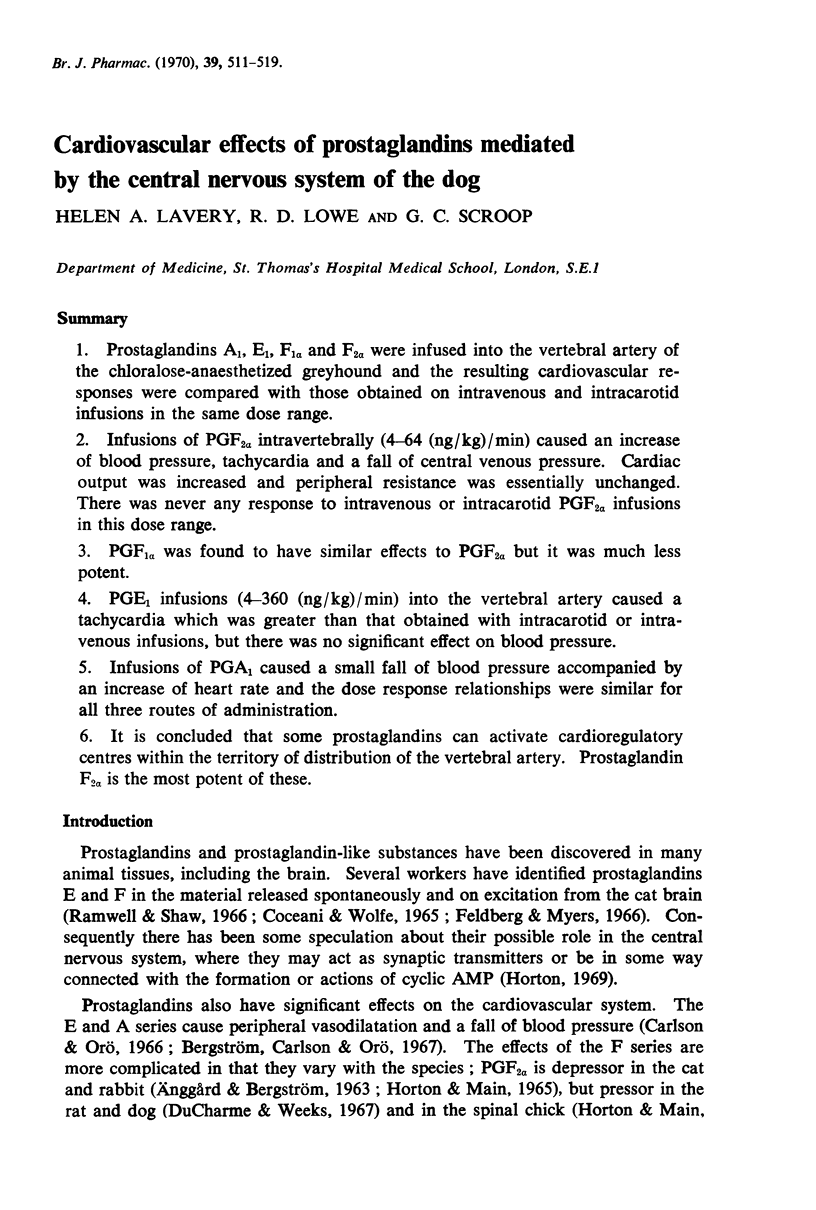
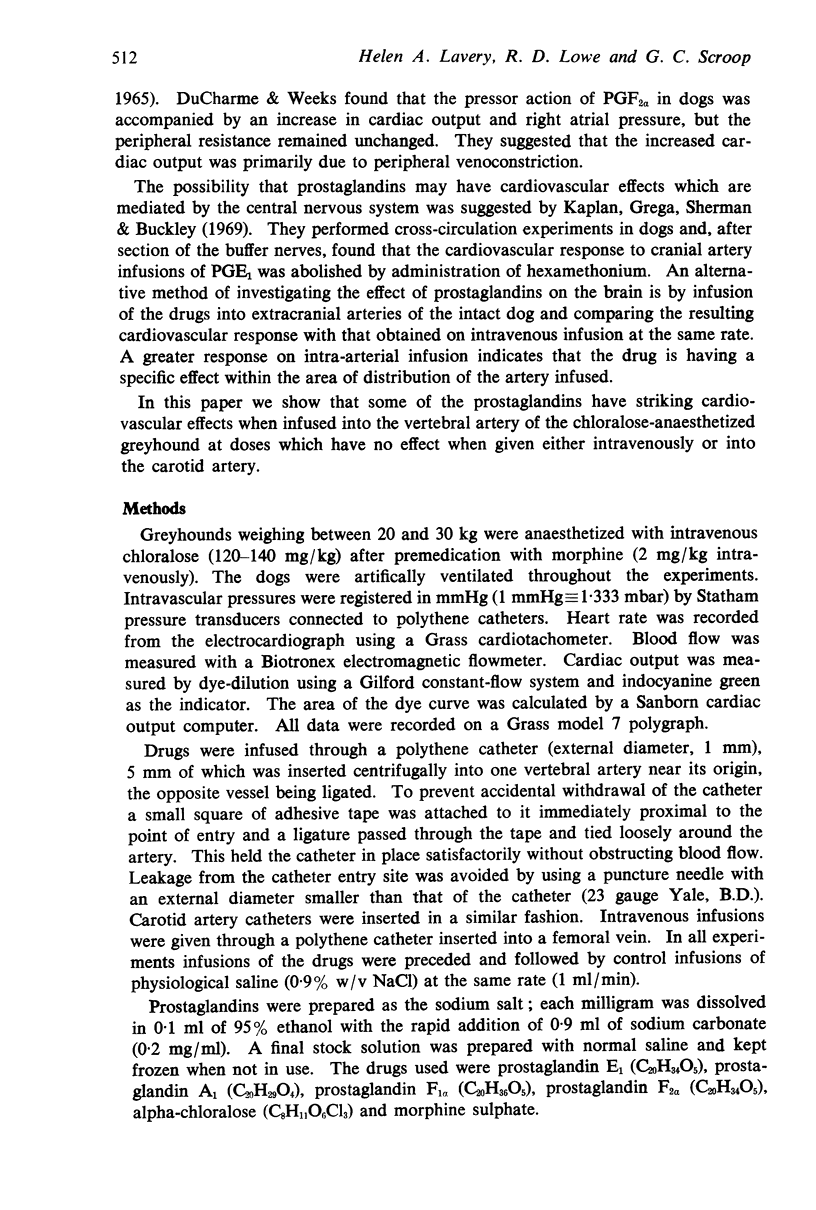
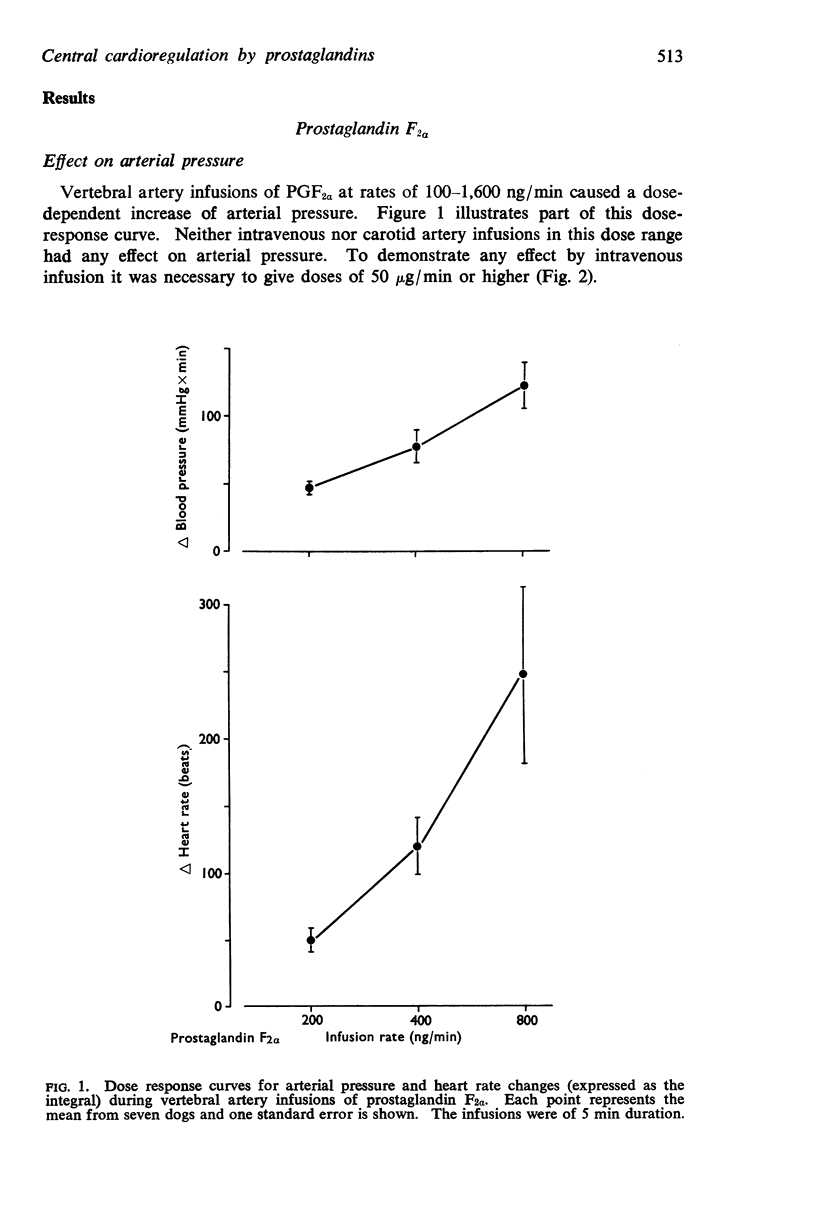
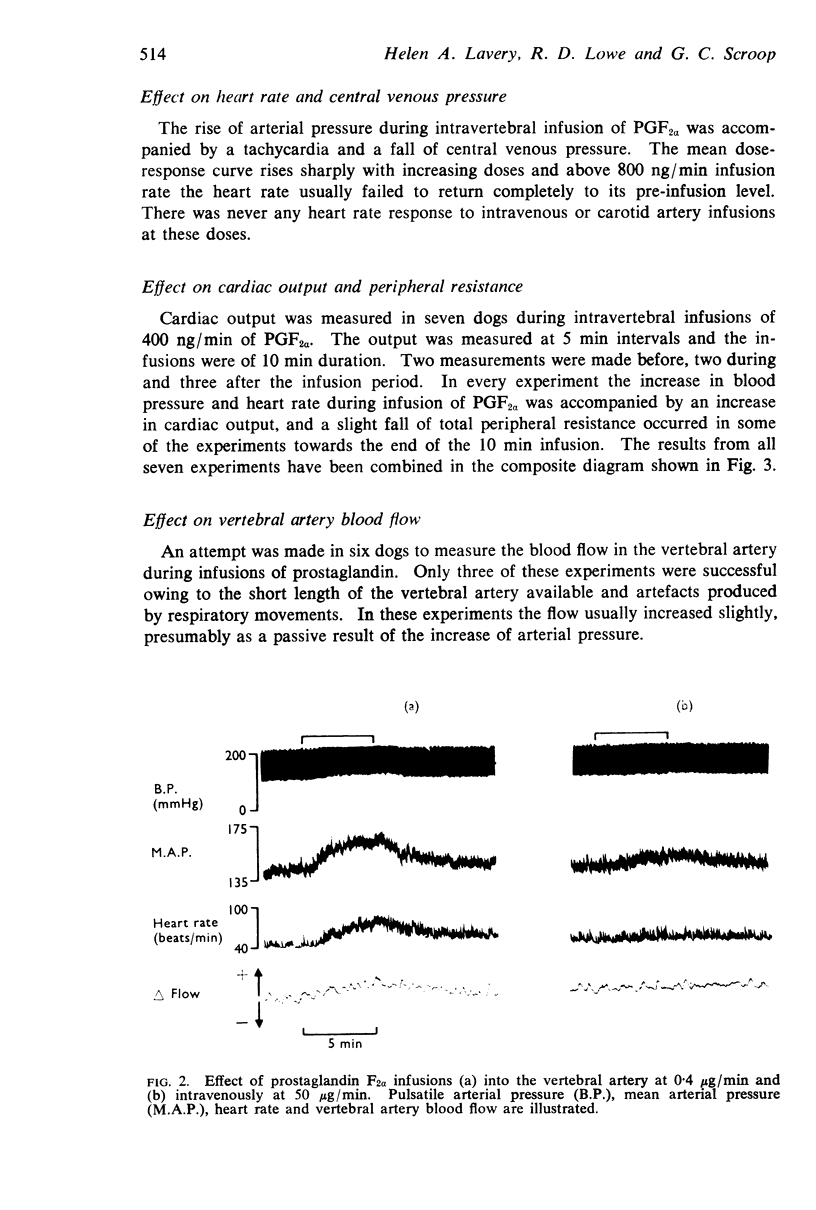
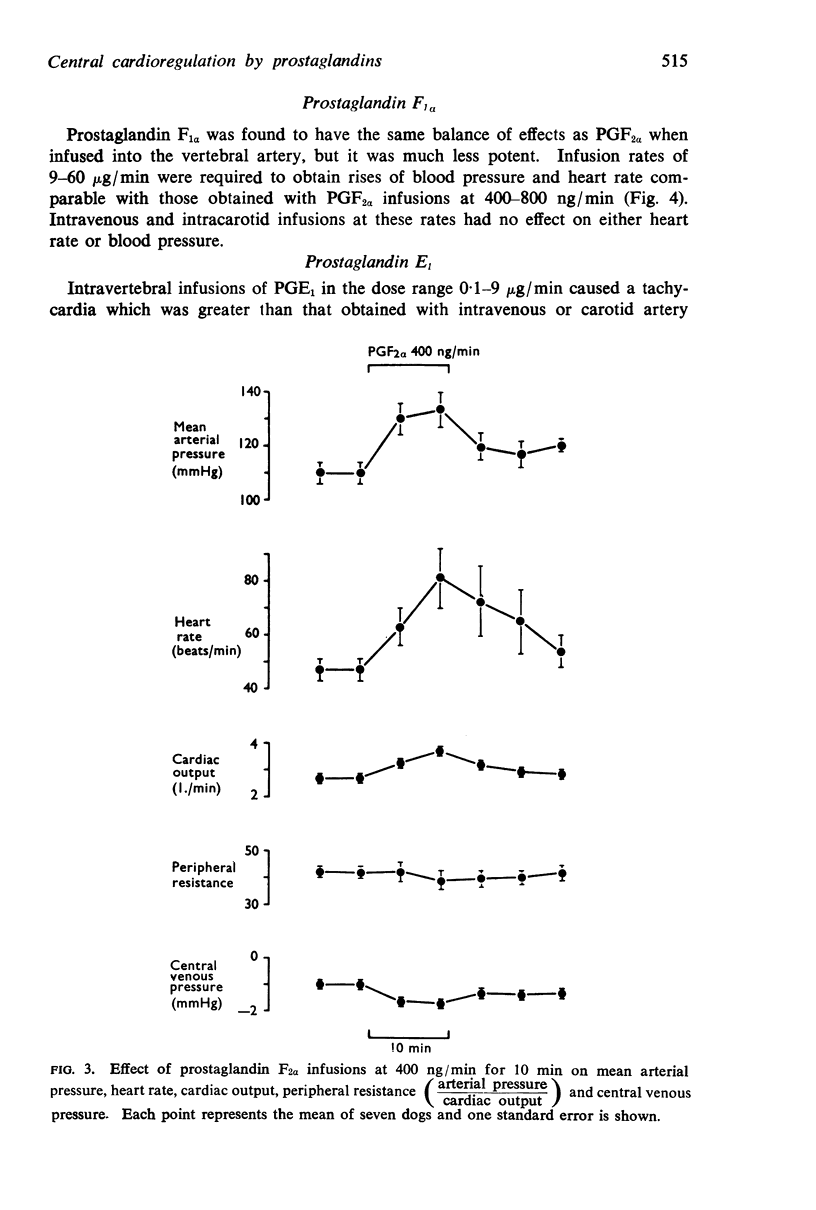
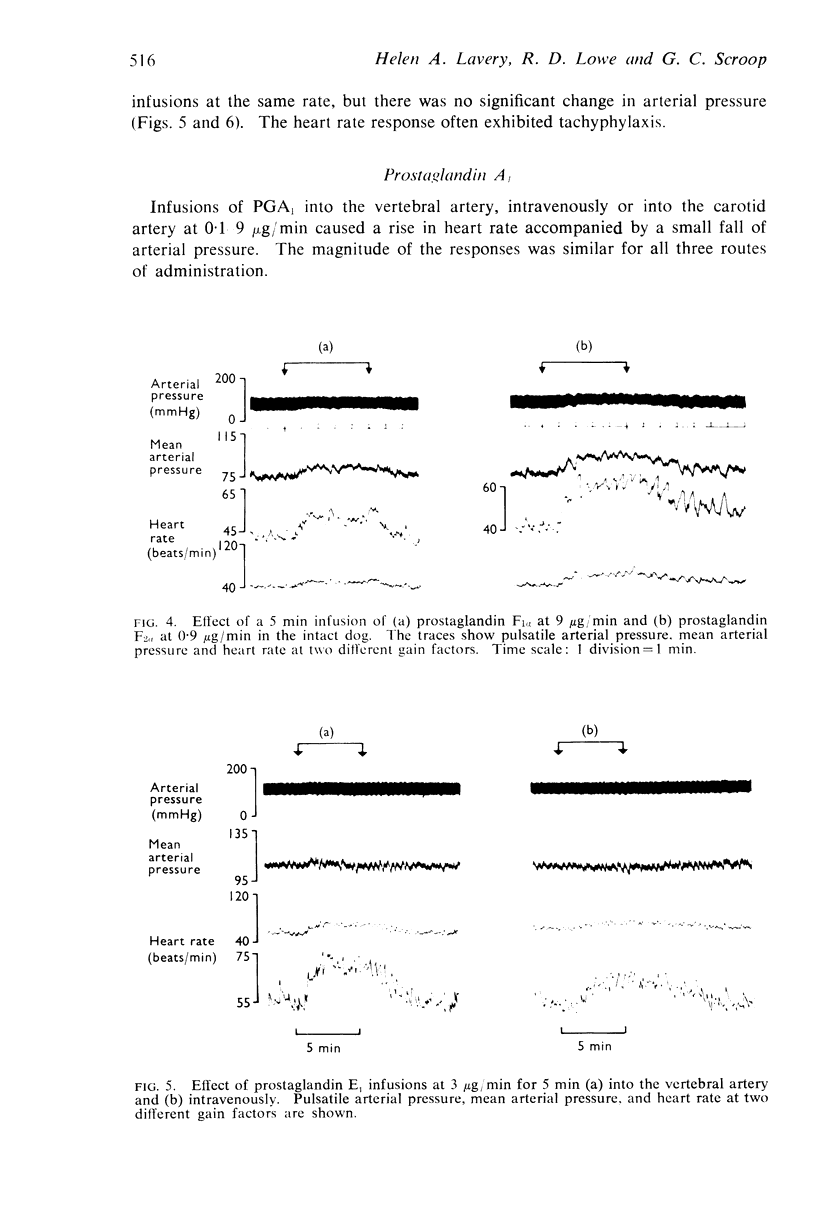
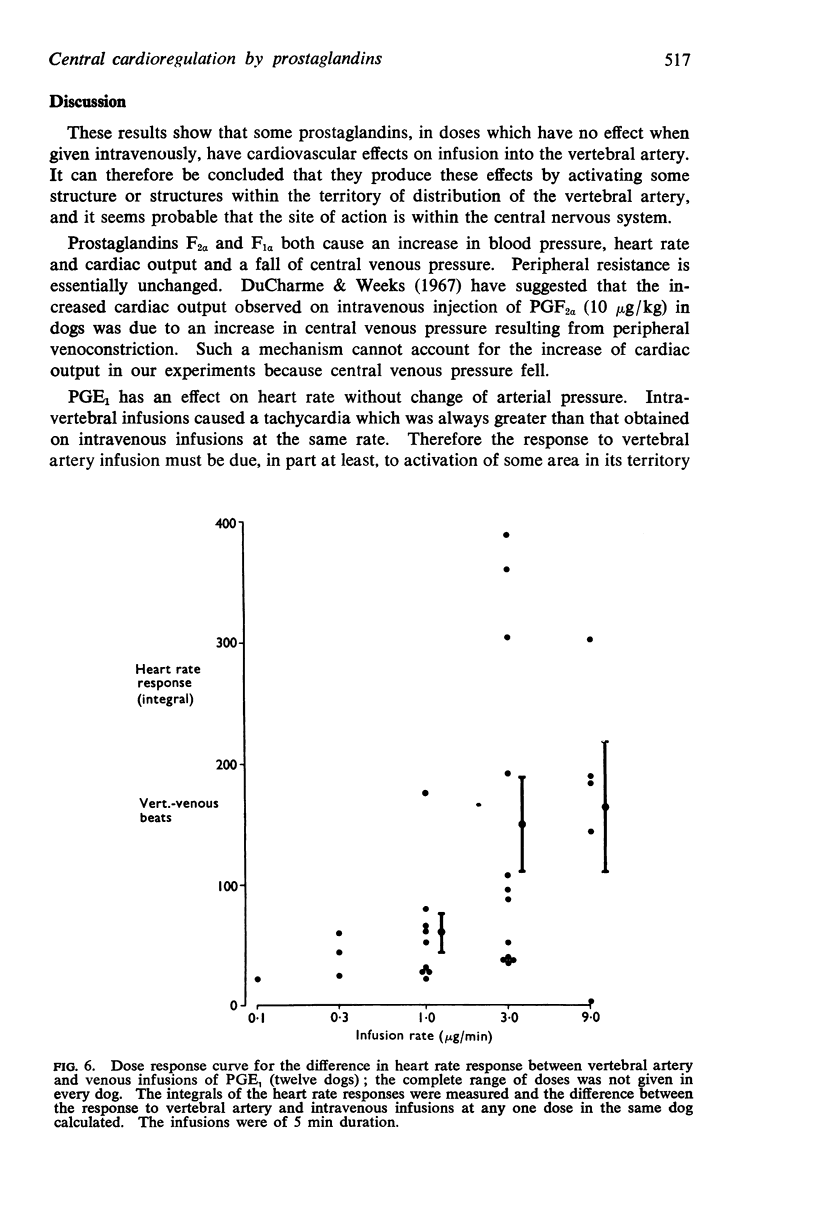
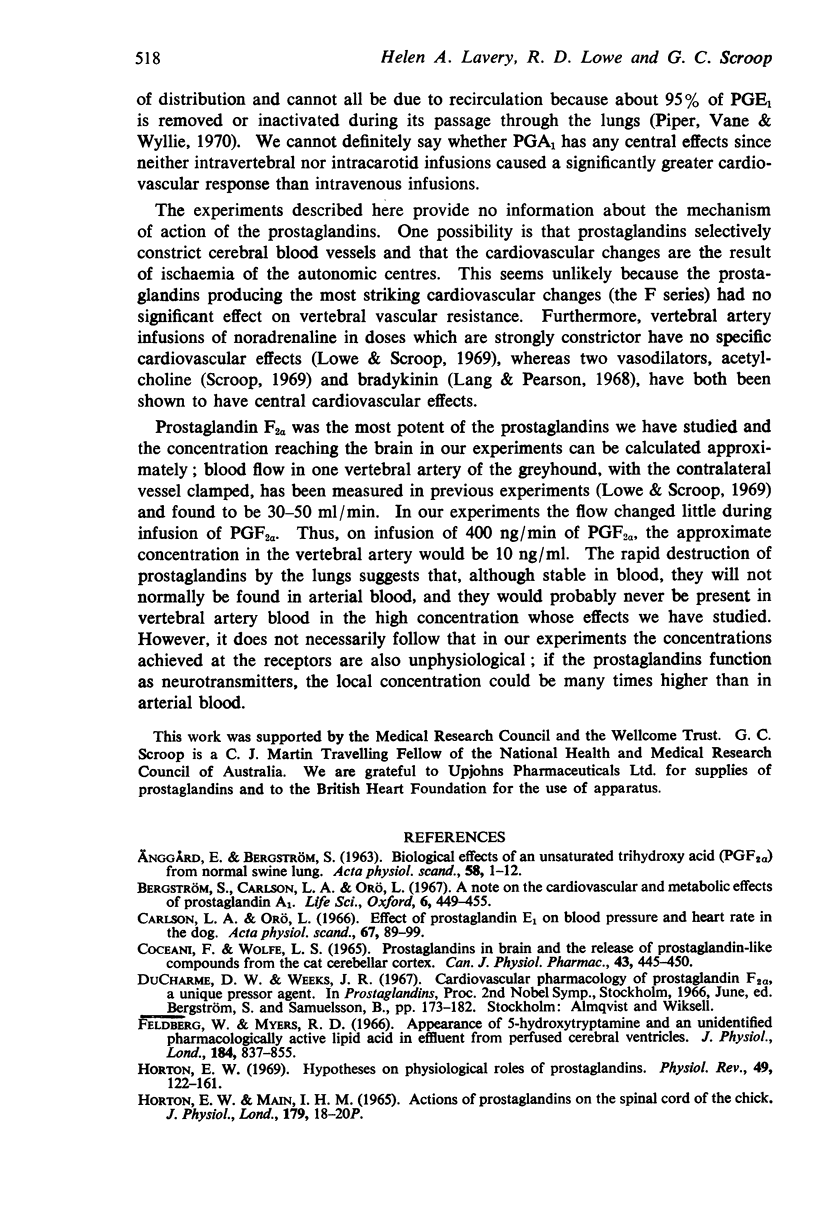
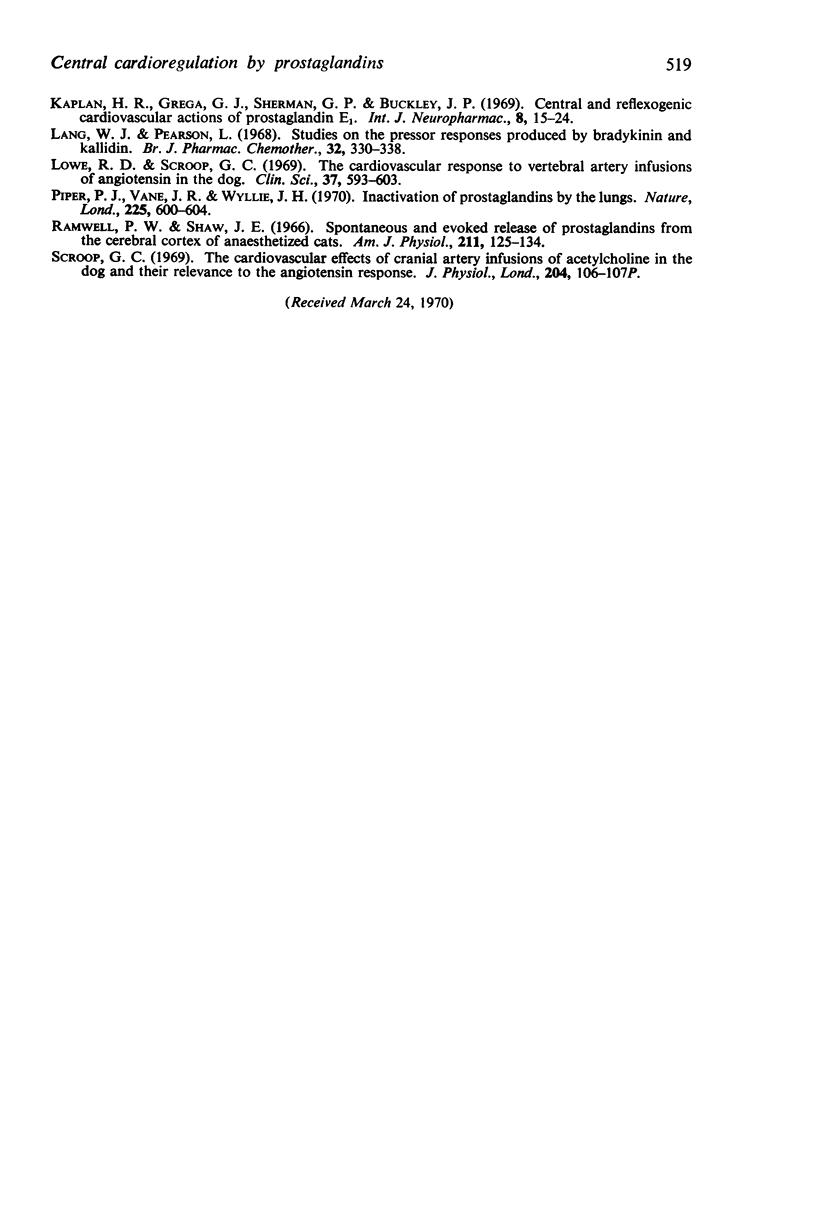
Selected References
These references are in PubMed. This may not be the complete list of references from this article.
- ANGGARD E., BERGSTROM S. Biological effects of an unsaturated trihydroxy acid (PGF2alfa) from normal swine lung. Acta Physiol Scand. 1963 May;58:1–12. doi: 10.1111/j.1748-1716.1963.tb02622.x. [DOI] [PubMed] [Google Scholar]
- Bergström S., Carlson L. A., Orö L. A note on the cardiovascular and metabolic effects of prostaglandin A-1. Prostaglandin and related factors 61. Life Sci. 1967 Mar 1;6(5):449–455. doi: 10.1016/0024-3205(67)90046-x. [DOI] [PubMed] [Google Scholar]
- COCEANI F., WOLFE L. S. PROSTAGLANDINS IN BRAIN AND THE RELEASE OF PROSTAGLANDIN-LIKE COMPOUNDS FROM THE CAT CEREBELLAR CORTEX. Can J Physiol Pharmacol. 1965 May;43:445–450. doi: 10.1139/y65-045. [DOI] [PubMed] [Google Scholar]
- Carlson L. A., Orö L. Effect of prostaglandin E1 on blood pressure and heart rate in the dog. Prostaglandin and related factors 48. Acta Physiol Scand. 1966 May;67(1):89–99. doi: 10.1111/j.1748-1716.1966.tb03290.x. [DOI] [PubMed] [Google Scholar]
- Feldberg W., Myers R. D. Appearance of 5-hydroxytryptamine and an unidentified pharmacologically active lipid acid in effluent from perfused cerebral ventricles. J Physiol. 1966 Jun;184(4):837–855. doi: 10.1113/jphysiol.1966.sp007951. [DOI] [PMC free article] [PubMed] [Google Scholar]
- Horton E. W. Hypotheses on physiological roles of prostaglandins. Physiol Rev. 1969 Jan;49(1):122–161. doi: 10.1152/physrev.1969.49.1.122. [DOI] [PubMed] [Google Scholar]
- Kaplan H. R., Grega G. J., Sherman G. P., Buckley J. P. Central and reflexogenic cardiovascular actions of prostaglandin E1. Int J Neuropharmacol. 1969 Jan;8(1):15–24. doi: 10.1016/0028-3908(69)90030-6. [DOI] [PubMed] [Google Scholar]
- Lang W. J., Pearson L. Studies on the pressor responses produced by bradykinin and kallidin. Br J Pharmacol Chemother. 1968 Feb;32(2):330–338. doi: 10.1111/j.1476-5381.1968.tb00976.x. [DOI] [PMC free article] [PubMed] [Google Scholar]
- Lowe R. D., Scroop G. C. The cardiovascular response to vertebral artery infusions of angiotensin in the dog. Clin Sci. 1969 Dec;37(3):593–603. [PubMed] [Google Scholar]
- Piper P. J., Vane J. R., Wyllie J. H. Inactivation of prostaglandins by the lungs. Nature. 1970 Feb 14;225(5233):600–604. doi: 10.1038/225600a0. [DOI] [PubMed] [Google Scholar]
- Ramwell P. W., Shaw J. E. Spontaneous and evoked release of prostaglandins from cerebral cortex of anesthetized cats. Am J Physiol. 1966 Jul;211(1):125–134. doi: 10.1152/ajplegacy.1966.211.1.125. [DOI] [PubMed] [Google Scholar]


